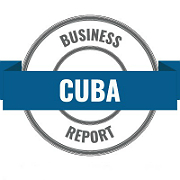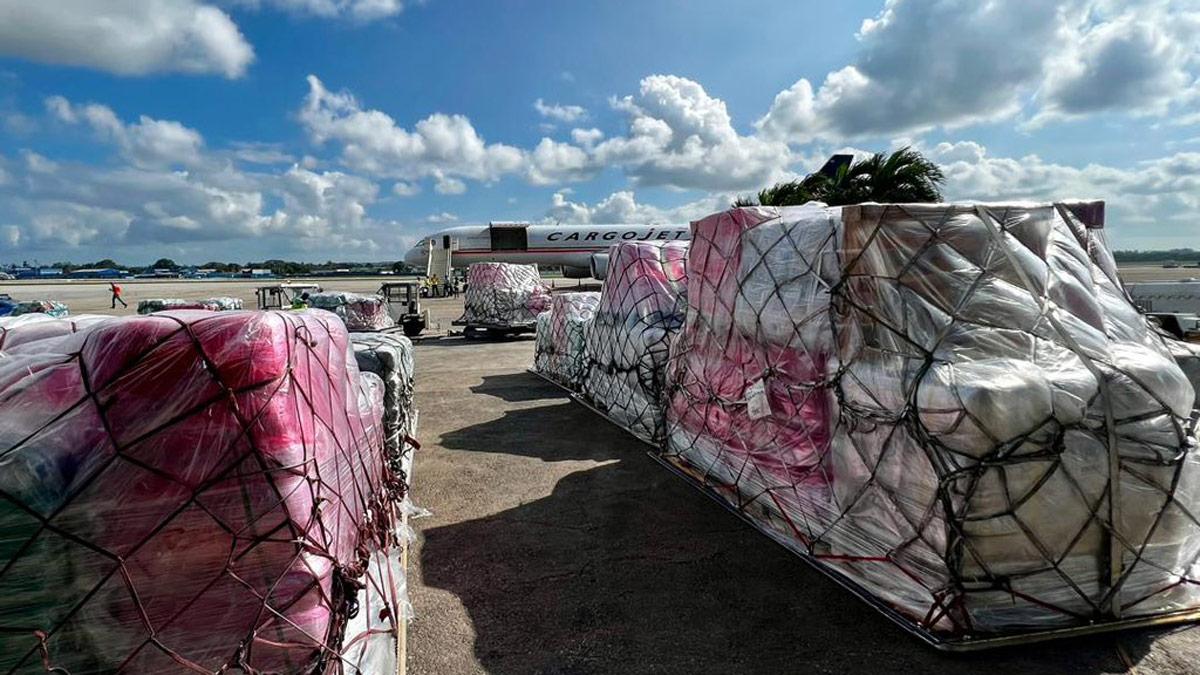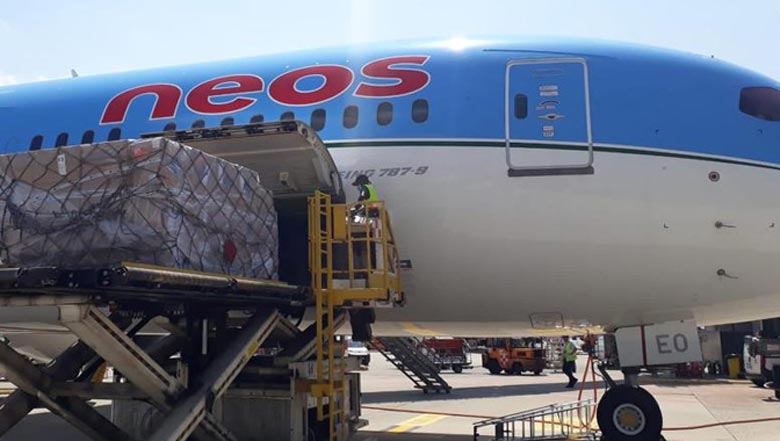It’s been a week since two hurricanes (Rafael and Oscar) and earthquakes (magnitudes of 6.8 and 5.9) swept through Cuba. Emergency relief and worldwide support have poured in. The assistance has contributed to the massive efforts of recovery teams on the ground.
Cuba’s president Miguel Diaz-Canel reported in his X account that “41 countries and several international organizations have shown solidarity with Cuba.” He said that the US had said Cuba had not asked for anything. “Here is our demand #TumbaElBloqueo,” he replied.
The economic blockade of Cuba (or ‘the embargo,’ as it is known in the US) has made the financial and credit constraints worse for the island. It has limited the ability to purchase spare parts to repair the system. It also limits technology acquisition, and the fuel required to guarantee a stable power supply to the population and economic sectors.
Cubans have experienced blackouts and water supply issues during the hurricanes and earthquakes. Conditions are more severe in the disaster areas of eastern Cuba and the western provinces. In late October, five countries—Barbados, Colombia, Mexico, Russia and Venezuela had already shipped fuel to help with the electrical supply issues already plaguing Cuba.
Extensive emergency relief came from the European Union and the United Nations in collaboration with other entities.
The EU Civil Protection & Humanitarian Aid agency (EU Echo) has sent cargo flights to Cuba and €600,000 in aid to help the most affected communities. EU Echo has collaborated with the United Nations System in Cuba (ONU_Cuba) and the Spanish Agency for International Development Cooperation (AECID). Five flights have delivered over 100 tonnes of basic supplies, such as shelter, water, hygiene and sanitation items.
Other agencies involved in the disaster relief efforts include the ACNUR_es, Opscuba, PNUDCuba, UNICEF Cuba, the UN agency for Refugees and World Food Program Cuba (WFP Cuba).
ONU_Cuba’s action plan includes providing the UN’S Food and Agriculture Organization (FAO) with funds to support agriculture (short-cycle crops, irrigation systems, solar panel pumps and agricultural tools), forestry and fishing recovery in the affected areas.
On November 8, the Russian Embassy in Havana announced it would send 80,000 tons of diesel and equipment worth $62 million in response to the energy emergency. Four days later, Russia’s Minister of Emergencies, Aleksandr V. Kurenkov, arrived at José Martí International Airport.
Russian Ambassador, Victor V. Koronelli, and the Deputy Minister of the Interior Brigadier General Jesús Manuel Burón Tabit met Minister Kurenkov at the Jose Marti International Airport.
“We came with the aim of continuing to strengthen collaborative relations with Cuba,” Kurenkov said of the visit.
Kurenkov visited fire station № 15 in the Vedado district of Havana, where Russia donated firefighting equipment. Russian specialists will provide training.
Diaz-Canel thanked Kurenkov for his country’s contribution to the emergency situation. “We always see the solidarity hand of Russia supporting Cuba,” he said.
Other nations and solidarity groups have also contributed to relief efforts.
Chinese oil experts shared knowledge and experiences about refining in Cuba. China joined in with Cuban efforts to resolve the current energy situation.
Canada donated $50,000 to UNICEF Cuba for medical kits to sustain up to 12,000 people for three months. Care Canada in Cuba received $350,00 to provide water, sanitation and hygiene services for distribution to 25,000 people in Guantanamo. Canada also donated $460,000 to the WFP Cuba to support crisis-affected areas with food, fuel, transportation, temporary shelters and warehousing capabilities. Canada also gave $40,000 to the Cuba’s Red Cross to assist 5,000 vulnerable peoples with water, sanitation and hygiene, health services and emergency shelter. The Canadian government also donated medical kits to UNICEF Cuba for those impacted by Hurricane Oscar.
In addition, the Canadian Network on Cuba is also fundraising for the recovery efforts. To contribute, visit: https://canadiannetworkoncuba.ca/2024/11/08/canadian-network-on-cuba-hurricane-relief-campaign/ for more information on efforts.
The People’s Forum in New York City, sent four shipments of aid to Cuba, including 54 generators for hospitals in affected areas. Another shipment by the People’s Forum included 26,000 bottles of cooking oil, which is in short supply and high demand.
To help with the People’s Forum efforts, you can find more information about donating on their website at: peoplesforum.org/cubarelief.
Cubans living abroad have also offered their collaboration. Fundraising efforts have helped with food and resources to recover the National Electric System.
The United States has done absolutely nothing to assist Cuba, its neighbor, just 90 miles to the south.

From our staff writers and editors.











